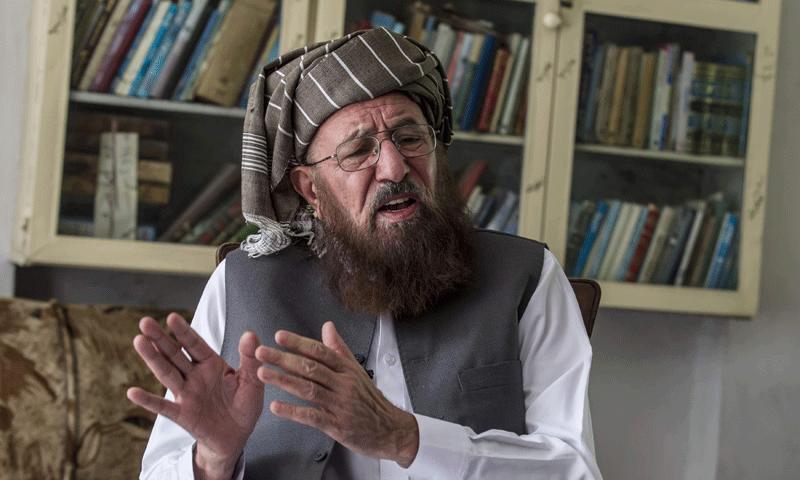| Date: 20-Nov-2018 |

Eff off https://t.co/ErwxnBeJGa
— Zee. (@whatsis123) November 2, 2018
Here you go...... https://t.co/5k0UxP6tsA
— Maqsood Asi (@MaqsoodAsi) November 2, 2018
Shut up you ass hole . https://t.co/64N7nWHVrt
— A. (@Alevee12) November 2, 2018
Your last tweet was 4 days ago. As cities were paralyzed and people's cars set on fire by raging mobs, you had nothing to say about the loss of life and property. Just a statement that you wouldn't interfere (to stop the mayhem).
— Tabinda M. Khan (@tabinda_m) November 2, 2018
And now this news restores your voice? https://t.co/iIEBD9nyVl
A reputed Pakistani commentator who writes for Huffington Post tweeted that, “The Pakistani intelligence agency’s dear departed, religious scholar ‘with a sense of humor’ Maulana #SamiulHaq with ruthless killer Jalaluddin Haqqani, who is alumnus of Sami’s Haqqania seminary”. He has also written extensively about the history of Haqqani network and is a veritable expert on the subject. https://twitter.com/mazdaki/status/1058493293695303682غفور بھائی واپس آ گئے۔ مبارک ہو ۔ وہ الگ بات کہ اپنے اثاثے کے مرنے پر آئے https://t.co/22ovvyr8wx
— Ahmad Waqass Goraya (@AWGoraya) November 2, 2018
Some even criticized segments of the Pakistani media for what was seen as its pro-establishment and pro-extremists:Here’s the ISI’s dear departed, religious scholar ‘with a sense of humor’ Maulana #SamiulHaq with ruthless killer Jalaluddin Haqqani, who is alumnus of Sami’s Haqqania seminary #Pakistan pic.twitter.com/Unz0vZXd4z
— Mohammad Taqi (@mazdaki) November 2, 2018
And then, there were Afghans who shared more information than the Pakistani media had:Pakistani media is busy portraying #MaulanaSamiulHaq as a hero. @Dawn_News anchor said he was very important for peace in #Afghanistan and the world. Do you smell the writer of the script? Who believes he was important for peace in Afghanistan? pic.twitter.com/rLtg3yjLZB
— Mujeeb (@MujeebS9) November 2, 2018
The Maulana who was supported by the Pakistan had become a threat to the Pakistani establishment. The people of Pakistan are no longer in agreement with their government. What Afghans and Pakistani people agree on is that, extremism has no place in their countries anymore.#Maulana #Samiulhaq recently had offline discussions on #Afghan Peace with Afghanistan govt & the #ISI was not happy with it, one reason of his assassination; 2nd he gave fatwa against Pak army, 3rd he was against the judiciary decision about Assia bibi. Conclusion #ISI did it.
— Noorullah Ahmadzai (@Noor_Ahmadzai84) November 3, 2018